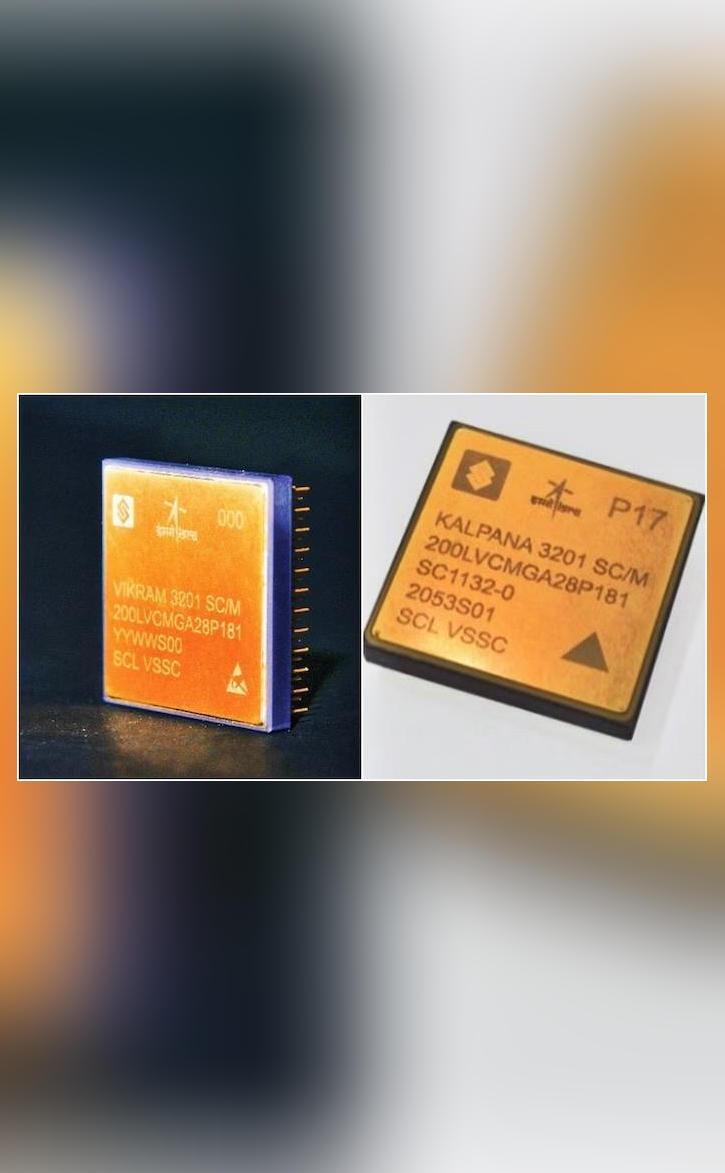
Title: ISRO & SCL Develop 32-bit Microprocessors for Space Applications
The Indian Space Research Organisation (ISRO) and the Semiconductor Laboratory (SCL) in Chandigarh have made a significant breakthrough in the field of space technology by jointly developing two 32-bit microprocessors, VIKRAM3201 and KALPANA3201. These microprocessors have been specifically designed for use in space applications, where the harsh environmental conditions of launch vehicles and space present unique challenges.
VIKRAM3201 is the first fully “Make-in-India” 32-bit microprocessor that has been qualified for use in the harsh environmental conditions of launch vehicles. This is a significant achievement for ISRO and SCL, as it showcases the country’s capabilities in developing indigenous technology for space exploration.
The development of these microprocessors is a testament to the collaborative efforts of ISRO and SCL. The Semiconductor Laboratory, located in Chandigarh, is a premier research and development institution that has been working closely with ISRO to develop indigenous technology for space applications.
The VIKRAM3201 microprocessor is a 32-bit processor that operates at a clock speed of 100 MHz. It has a 32KB cache memory and supports multi-processing capabilities. The processor is designed to operate in a temperature range of -40°C to 125°C, making it suitable for use in launch vehicles and space applications.
The KALPANA3201 microprocessor is another 32-bit microprocessor that has been developed by ISRO and SCL. It is designed to operate at a clock speed of 100 MHz and has a 16KB cache memory. The processor supports multi-processing capabilities and is designed to operate in a temperature range of -40°C to 125°C.
The development of these microprocessors is a significant step forward for India’s space program. The country has been making rapid progress in the field of space technology, and the development of indigenous microprocessors is a key component of this effort.
The use of indigenous microprocessors in space applications will not only reduce the country’s dependence on foreign technology but also provide a significant boost to the domestic electronics industry. The development of these microprocessors is a testament to the innovative capabilities of Indian scientists and engineers, and it is expected to have a significant impact on the country’s space program in the years to come.
The development of VIKRAM3201 and KALPANA3201 microprocessors is a result of the collaborative efforts of ISRO and SCL. The Semiconductor Laboratory has been working closely with ISRO to develop indigenous technology for space applications, and the development of these microprocessors is a significant achievement for both organizations.
The VIKRAM3201 and KALPANA3201 microprocessors have been designed to operate in a range of space-related applications, including launch vehicles, satellites, and space exploration missions. The processors are designed to operate in a harsh environment, withstanding extreme temperatures, radiation, and other environmental factors.
The development of these microprocessors is a significant step forward for India’s space program, and it is expected to have a significant impact on the country’s ability to explore space. The use of indigenous microprocessors will not only reduce the country’s dependence on foreign technology but also provide a significant boost to the domestic electronics industry.
In addition to the development of VIKRAM3201 and KALPANA3201 microprocessors, ISRO and SCL are also working on the development of other indigenous technology for space applications. The development of these technologies is a key component of India’s space program, and it is expected to play a significant role in the country’s future space exploration missions.
The development of indigenous microprocessors is a significant achievement for India’s space program, and it is expected to have a significant impact on the country’s ability to explore space. The use of indigenous microprocessors will not only reduce the country’s dependence on foreign technology but also provide a significant boost to the domestic electronics industry.
In conclusion, the development of VIKRAM3201 and KALPANA3201 microprocessors by ISRO and SCL is a significant achievement for India’s space program. The microprocessors have been designed to operate in a range of space-related applications, including launch vehicles, satellites, and space exploration missions. The development of these microprocessors is a testament to the innovative capabilities of Indian scientists and engineers, and it is expected to have a significant impact on the country’s space program in the years to come.
News Source: https://www.isro.gov.in/vikram3201.html






